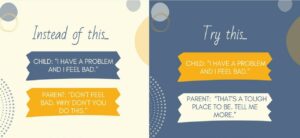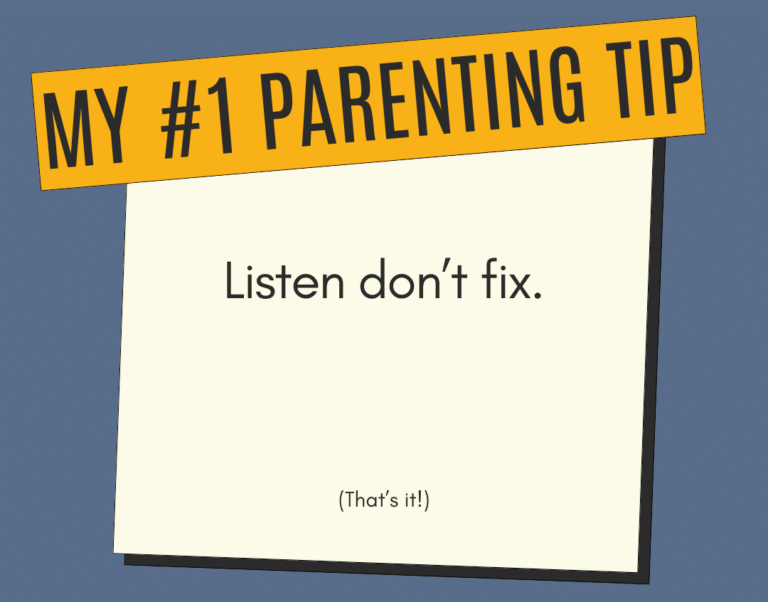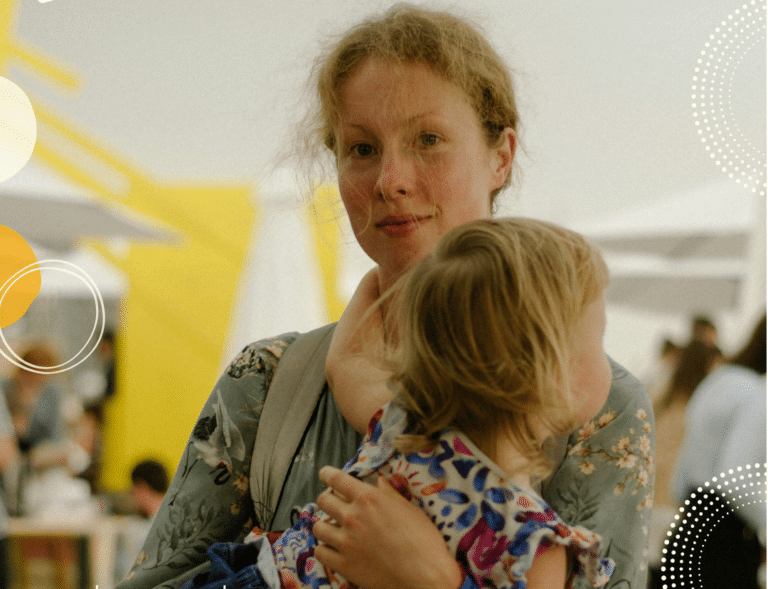Listen don’t fix
If I could pick just one top parenting tip for parents, it would be “Listen don’t fix.” As adults, we are often very quick to jump in and try to fix children’s problems for them, and to give advice or suggestions.
However, we often help our children more just by listening, and by giving them a safe sounding board to work through their problem, reach their own understanding and come up with their own ideas about what they could do.
Children don’t always need our advice, just our ears.
What does “Listen don’t fix” look like in practice? Well, it’s the difference between a child saying “I have a problem” and us responding with a suggestion (“Why don’t you do this?”) versus a child saying “I have a problem” and us responding “You have a problem. Tell me more about that.” And then maybe giving a prompt or asking a question in a way that gives them space to express and explore.
It’s the difference between us saying, “This is what you should do” and us asking, “What ideas do you have for fixing this problem?” and handing it back to them.
Why “Listen don’t fix” is so important
As a parenting principle, “Listen don’t fix” opens up conversations, deepens understanding and unlocks new skills. When we stop to really listen, we get real insight into children’s thoughts and feelings.
Even more importantly, we create a safe space for them to feel and think and problem-solve for themselves.
And by stepping back and letting them come up with solutions, we send the signal “You’ve got this – I think you can handle this”. Which is really important for building children’s self-esteem and resilience.
What stop parents doing this?
We care about our children! We want to smooth their paths and make things easier for them because watching them struggle is really hard.
Sometimes we feel like we’re not succeeding as parents if our child is struggling and that it’s our job to make things better for them.
And sometimes, we’re just rushing, and it can feel quicker or easier to just tell our children what to do rather than stopping and really listening.
But what if children are emotional?
When children are upset, our instinct is usually to jump in and reassure them by telling them it’s all ok. But if we follow the principle of “Listen don’t fix” we can support children to regulate their own emotions better.
If your child (or teen) is upset, stay calm, pause and listen. Don’t try to change their feelings, just acknowledge their feelings. Say what you see. “It looks like you’re really disappointed you didn’t get invited” and be prepared to sit quietly for a moment, waiting for them to become ready to talk.
Rather than offering explanations, be curious. Ask “what do you think might be going on here?” There could be many reasons why this situation has occurred (and why they are upset) so give them a space to talk about it and just listen.
You might be surprised at how capable your child is to find a way through a problem without you fixing it.
Let me know how you get on!








Leave a Reply